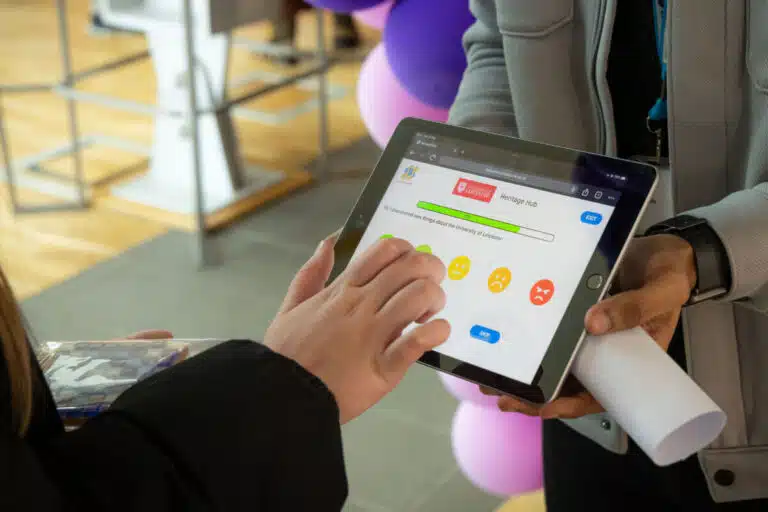Hospice trials ‘inclusive & ethical’ data gathering tool ahead of wider rollout

The LOROS Hospice is trialling an ‘inclusive and ethical’ data gathering tool developed by University of Leicester researchers to gain service user feedback, ahead of planned rollout to other hospices.
LOROS provides free care and support to over 2,500 terminally ill residents a year in Leicester, Leicestershire, and Rutland, their family and carers, through multidisciplinary services. To help them better understand the patient experience, the University of Leicester researchers partnered with LOROS to co-create LeicSurveyTM: a digital data gathering tool that aims to be an exemplar for ethical and inclusive data gathering to help charities, especially hospices, quantify the impact of their services.
LeicSurvey combines a simple user interface with tools for collating and presenting complex data, including changes in user engagement and satisfaction over time. It is described as taking a ‘dignity by design’ approach by putting the user in control of the surveying. Visual design elements can be optimised to make survey taking easier for users, questions are simplified to help save time, design can be diversified for inclusivity, and data gathering is completely anonymised.
Advertisement
Jo Polkey, Director of Patient Services & Clinical Quality at LOROS, said:
“LOROS is delighted to be partnering with the University of Leicester team. Our interdisciplinary collaboration with academics and students outside of clinical care has been insightful and mutually beneficial. We have been quite impressed by our partners’ commitment to ensuring the survey meets our needs and the highest security and regulatory compliance.”
The software is already in use by the University of Leicester Heritage Hub and will soon be rolled out at multiple hospices. The team hopes that by enabling these organisations to collect richer data from their users they will be able to help decision-makers understand their roles in supporting community cohesion, wellbeing, and social and economic regeneration.
Veronica Mickleburgh, Clinical Service Development Project Lead at LOROS, said:
“The LOROS team have very recently implemented LeicSurvey within some clinical Services such as in the ward, day therapy and outpatients as part of phase 1. The relevant Heads of services and managers involved in the roll-out within their clinical services have been supportive and initiated ways of highlighting the survey to patients and families which fit with their services.
“During the validation phase, we were impressed by the frictionless nature of the survey and pace of analysis, offering us richer insights instantaneously, with the outcome of saving administration time. Phase 2 will involve embedding the digital survey into other services and potentially evaluating hardware to enable easier access to our patients and their families and carers.”
The partnership received seed funding from the Centenary Community Engagement Fund: a University of Leicester funding mechanism that enables researchers to tackle complex challenges faced by local communities. This supported two School of Engineering graduates Alagu Arunachalam and Sai Kumar Mattireddy who helped in engineering this survey tool. The team is currently working with hospices across the UK and India to implement the tool.



